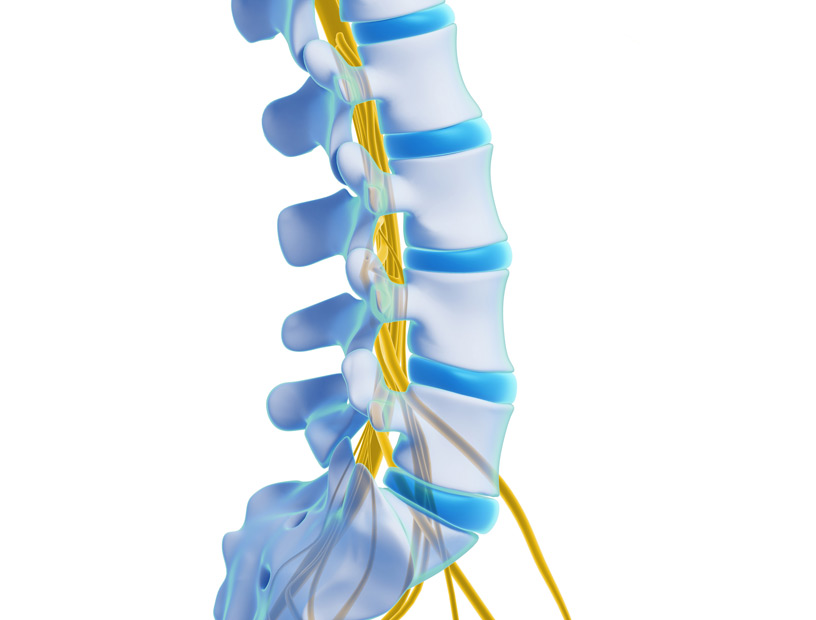
Spinal fusion can help to relieve back discomfort.
Spinal fusion is a surgical treatment that can stabilize a spine that has become weakened. It may also be performed when all or part of a damaged spinal disc needs to be removed in order to relieve nerve pressure It’s a goal achieved by limiting motion of the spine in the affected area with the use of special hardware and bone graft material.
- Spinal fusion is one of the most frequently performed procedures in the United States
- It can be performed with a minimally invasive method
Why Spinal Fusion May Be Recommended
Spinal fusion can be performed at any point along the spine, although it’s often performed in either the cervical spine (neck) or the lumbar spine (lower back). It may be recommended for patients with degenerative disc disease, the general term for age-related wear-and-tear affecting the spongy discs that cushion the spine, or spondylolisthesis, a condition where a vertebra slips forward over the one below it. Spinal fusion may also be recommended to treat:
Spinal instability from an injury, infection, or tumor
An abnormal curvature of the spine (scoliosis)
Spinal fractures that result in severe instability
How It Works

A spinal fusion is a two-stage procedure. The initial surgery involves the removal of the offending disc (if the procedure being performed to correct instability from a herniated disc) and the installation of hardware, including screws and cages, to steady the spine after the bone graft material is applied. The next stage of the surgery is to wait for the graft material to form a natural fusion from one vertebra to the adjacent one.
Graft Material Options
Options for the graft material include the patient’s own bone, which is usually taken from the pelvic area, or a synthetic bone graft substitute that’s mixed with a special graft extender to increase the odds that the fusion will correctly form. An allograft bone graft is one that comes from a cadaver.
Types of Spinal Fusion
Fusion surgery can be performed from the front (anterior) or back (posterior). An anterior-posterior spinal fusion is one that’s done from both the back and the front. One of the more common variations of a spinal fusion is a posterior lumbar interbody fusion where a damaged disc is removed and bone is inserted into the remaining space.
Ideal Candidates for Spinal Fusion
Preferable candidates for spinal fusion surgery are patients who are in generally good overall health without any significant underlying conditions, such as type 2 diabetes that’s not efficiently managed or chronic high blood pressure. Odds of success also improve for patients who are within their normal weight range and those who don’t smoke or excessively drink alcohol. There should also be a firm commitment to actively participating in rehabilitation and physical therapy sessions.
Unless there is a pressing medical emergency, fusion is only considered if other treatments for relief aren’t successful. Due to the increased use of minimally invasive surgical procedures and advances in technology, spinal fusion surgery has become an increasingly reliable source of relief for many patients. Recovery usually takes place over several months as the fusion forms and the spine heals.

on caring for specific orthopedic needs.

